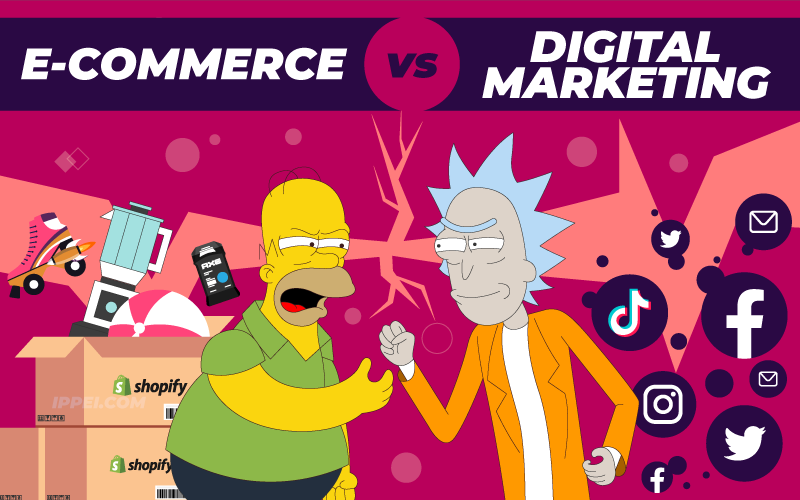The world of online business can be confusing. Two common terms are digital marketing and ecommerce. They sound similar but are very different. Let’s explore these differences.
Understanding Digital Marketing
Digital marketing is about promoting products or services online. It uses various digital channels. These channels include social media, email, search engines, and websites.
Key Components Of Digital Marketing
- Search Engine Optimization (SEO): This helps your website appear higher in search results.
- Content Marketing: This involves creating valuable content to attract customers.
- Social Media Marketing: This involves promoting products on social media platforms.
- Email Marketing: This involves sending promotional emails to potential customers.
- Pay-Per-Click (PPC) Advertising: This involves paying for ads that appear on search engines and websites.
Digital marketing aims to reach a wide audience. It builds brand awareness and drives traffic to a website. Now, let’s look at ecommerce.

Credit: www.scribd.com
Understanding Ecommerce
Ecommerce is about buying and selling products or services online. It involves online stores and payment systems. Ecommerce is the digital version of a traditional store.
Key Components Of Ecommerce
- Online Store: This is a website where products are listed for sale.
- Shopping Cart: This allows customers to collect items they want to buy.
- Payment Gateway: This processes online payments securely.
- Order Management: This tracks orders from purchase to delivery.
- Customer Service: This helps customers with any issues or questions.
Ecommerce focuses on the transaction process. It makes buying and selling easier for both businesses and customers. Now, let’s compare digital marketing and ecommerce.
Key Differences between Digital Marketing and Ecommerce
| Aspect | Digital Marketing | Ecommerce |
|---|---|---|
| Purpose | Promote products/services | Sell products/services |
| Main Focus | Brand awareness and traffic | Transaction and sales |
| Key Components | SEO, content, social media | Online store, payment system |
| Tools Used | Google Ads, Facebook Ads | Shopify, WooCommerce |
| Customer Interaction | Engaging through content | Facilitating purchases |
As you can see, digital marketing and ecommerce serve different purposes. They often work together to achieve business goals. For example, digital marketing can drive traffic to an ecommerce site. This increases the chances of sales.
How Digital Marketing Supports Ecommerce
Digital marketing plays a vital role in ecommerce success. Here are some ways it helps:
- Driving Traffic: SEO and ads bring visitors to the ecommerce site.
- Engaging Customers: Social media and email keep customers interested.
- Building Trust: Content marketing provides valuable information and builds trust.
- Analyzing Data: Analytics tools measure performance and improve strategies.
By using digital marketing, ecommerce businesses can reach more customers. This can lead to higher sales and growth.

Credit: ippei.com
Frequently Asked Questions
What Is Digital Marketing?
Digital marketing involves promoting products or services using digital channels like social media, email, and search engines.
What Is Ecommerce?
Ecommerce refers to buying and selling goods or services online through websites, apps, or online marketplaces.
How Do Digital Marketing And Ecommerce Differ?
Digital marketing focuses on promotion and engagement. Ecommerce focuses on online sales transactions and customer purchasing experience.
Can Digital Marketing Boost Ecommerce Sales?
Yes, effective digital marketing strategies can drive traffic to ecommerce sites, increasing sales and customer engagement.
Conclusion
Digital marketing and ecommerce are both essential in the online business world. Digital marketing focuses on promotion and engagement. Ecommerce focuses on transactions and sales. Together, they create a powerful combination for business success.
Understanding the difference between them is crucial. It helps businesses use the right strategies and tools. This ensures they can achieve their goals effectively.
Whether you are a marketer or a business owner, knowing these differences will help you succeed. Use digital marketing to drive traffic and build brand awareness. Use ecommerce to facilitate transactions and manage sales. Together, they will help your online business thrive.
We hope this article has clarified the difference between digital marketing and ecommerce. If you have any questions, feel free to reach out. Thank you for reading!


